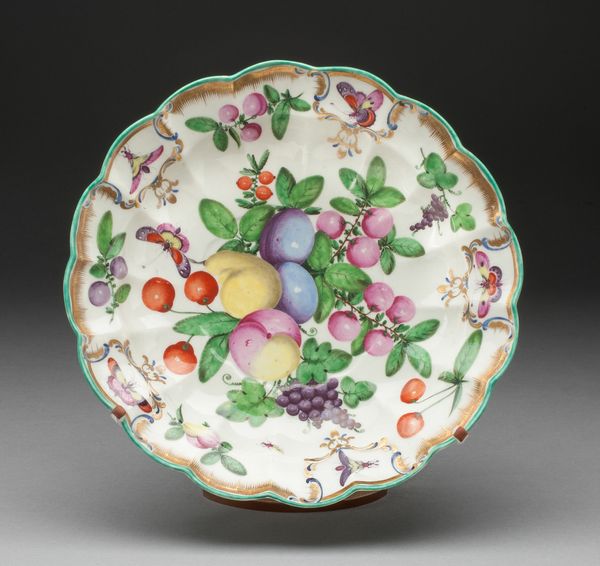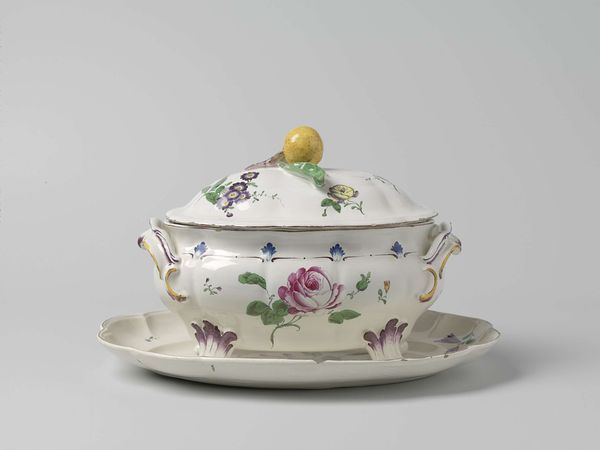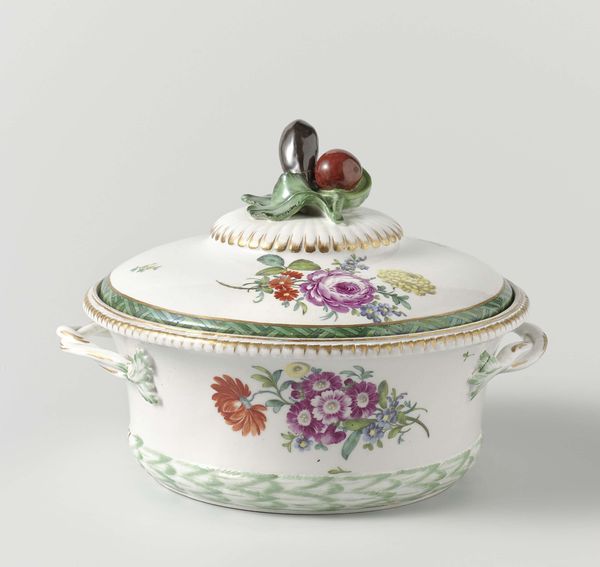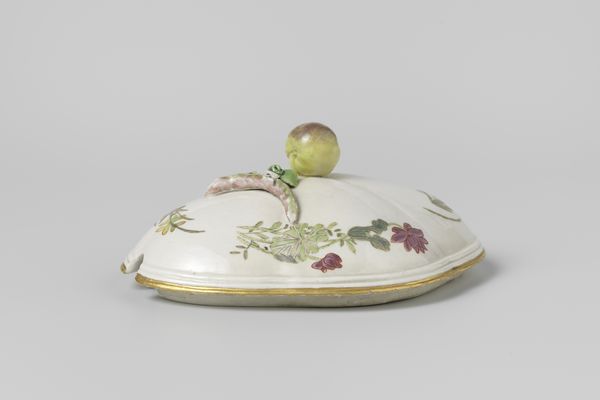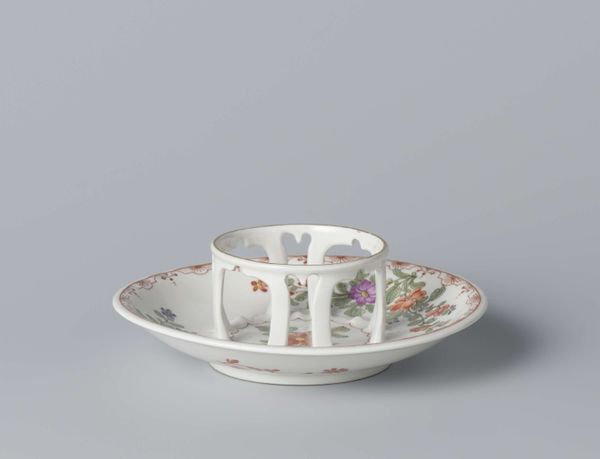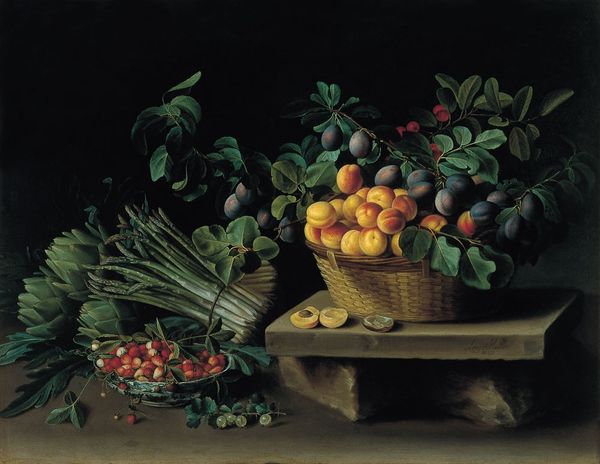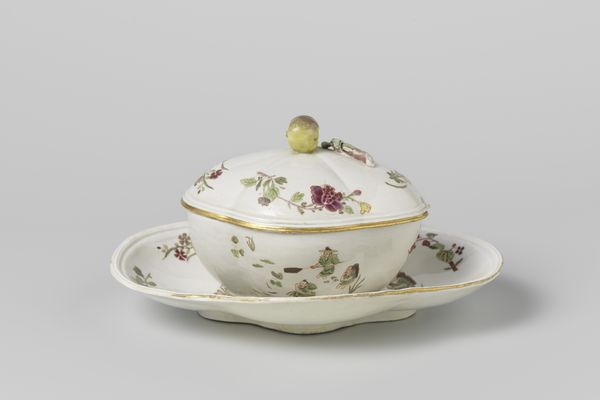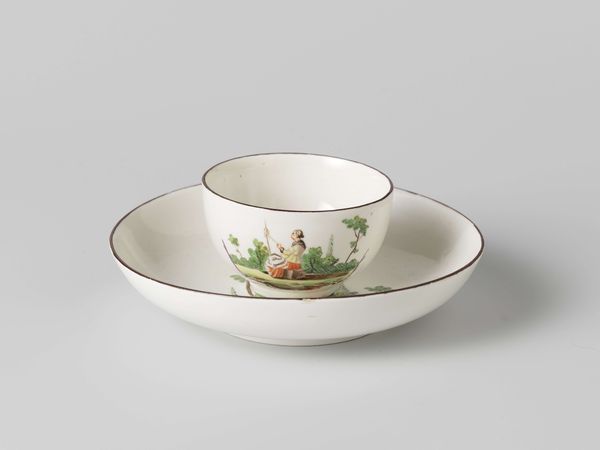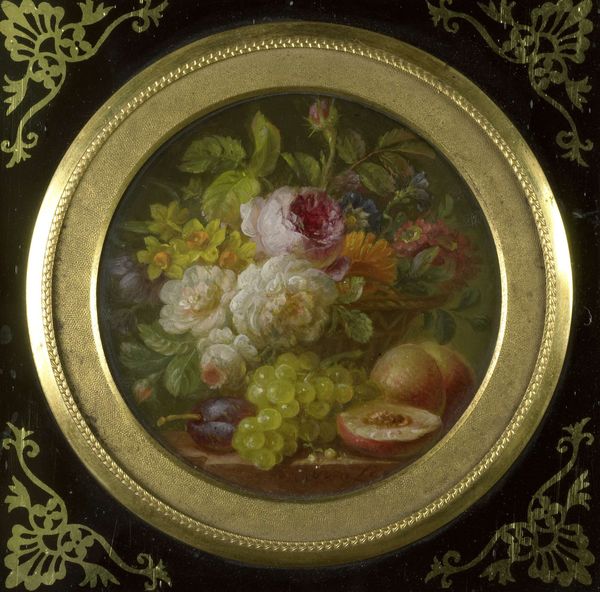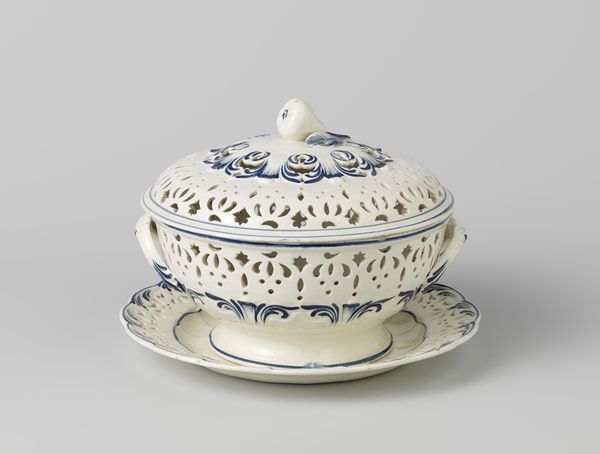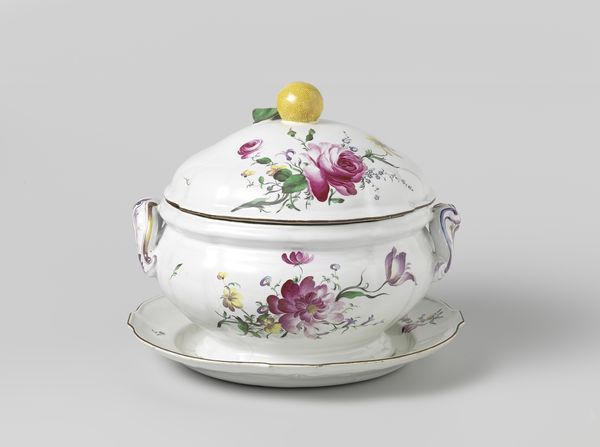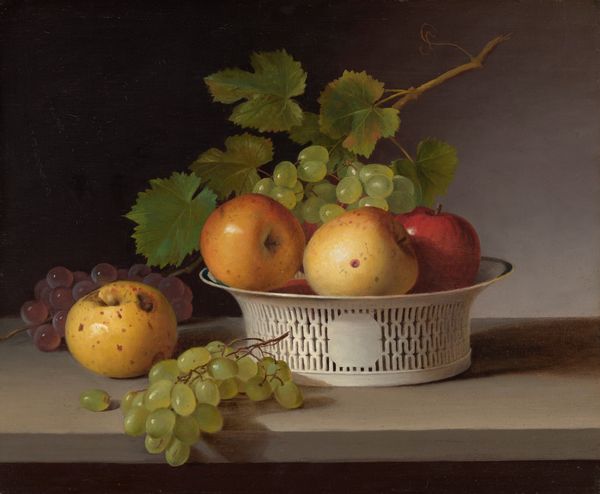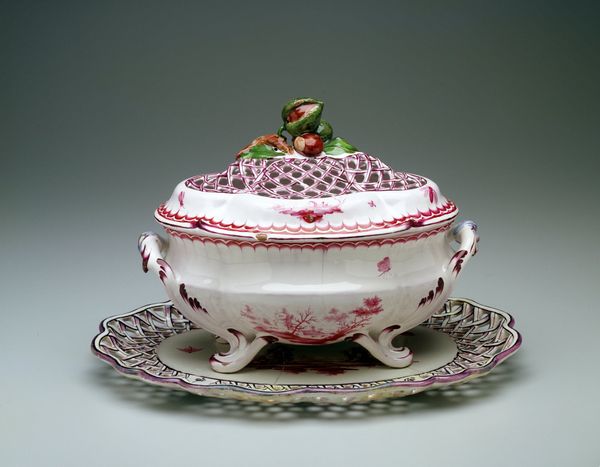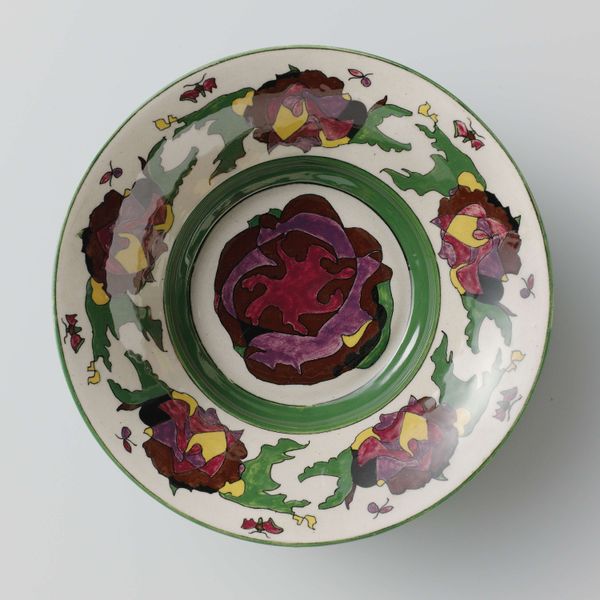
painting, oil-paint, ceramic, porcelain, ink
#
16_19th-century
#
food
#
painting
#
oil-paint
#
ceramic
#
porcelain
#
ink
#
fruit
#
classicism
#
ceramic
#
genre-painting
#
academic-art
#
watercolor
#
realism
Dimensions: 50.8 × 60.6 cm (20 × 23 7/8 in.)
Copyright: Public Domain
Editor: This is Hannah Brown Skeele’s "Fruit Piece," painted around 1860. It's an oil painting featuring a classic still life arrangement: fruits overflowing from a porcelain bowl, and another dish filled with what looks like sugar cubes. The colors are so rich; it evokes a sense of abundance. What symbols stand out to you in this work? Curator: It is tempting to focus on abundance, but look closer: consider the long tradition of the vanitas, and how fleeting beauty reflects human mortality. Doesn’t the fruit seem to teeter, already starting to spoil? This image, despite its initial appeal, quietly references that everything decays and disappears, particularly regarding food. The items speak to class; porcelain was for a long period an unaffordable luxury. Consider the pineapple at the rear - why do you think Skeele chose this, a less common fruit? Editor: Because it suggests wealth and global trade? I’d almost missed that detail, honestly. Curator: Precisely! It's also important to remember the historical context, post the Romanticism movement. Artists, while continuing themes of the era, often used more academic techniques - you can observe this through the commitment to realism. Do you believe there might be further cultural encoding in this seemingly simple scene? What about the silverware? Editor: Perhaps representing status and refinement? So it’s a more complicated picture than just "fruit." I'm beginning to see it less as just pretty fruit and more as a commentary on fleeting beauty. Curator: Exactly, consider the use of visual metaphor to present multiple ideas - what once seemed straightforward offers richer interpretations that require thought. What’s interesting about still life to you? Editor: It's like unlocking secrets hidden in plain sight, or even just reinterpreting the everyday through visual cues. Curator: Indeed! Skeele uses commonplace objects to suggest more important ideas about culture and society, forcing the viewer to decode the meanings behind symbols. The work really reveals just how rich the simplest things can become when filtered through art.
Comments
No comments
Be the first to comment and join the conversation on the ultimate creative platform.
